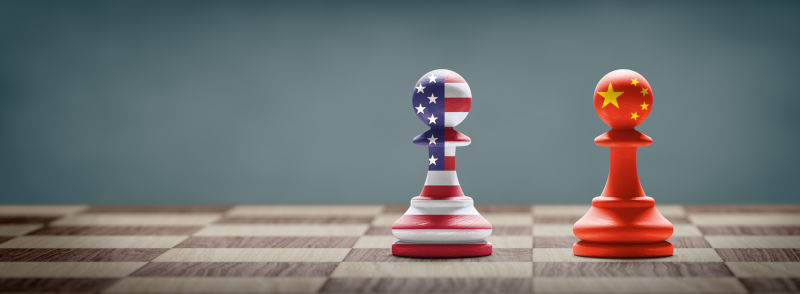Neither the US nor China seem intent on meaningful diplomacy
July 25, 2023
One side seems to prefer dealing with former leaders rather than current ones. The other likes to talk, while piling on coercive measures.
If what passes for diplomacy between China and the United States is any indication these days, we are all in real trouble. One side seems to prefer dealing with former leaders rather than current ones. The other just likes to talk, while piling on coercive measures. Dialogue is not the same as diplomacy; its worse when it sounds more like a monologue.
Beijing may be having a bout of nostalgia. Who wouldnt miss the times when Rodrigo Duterte was the friendly leader in the Philippines? Or when secret diplomacy with Henry Kissinger changed the world and launched China on the way to become a global power?
While both men still have undeniable influence in their own countries, it is no substitute for talking to the current leaders.
Its true that Dutertes daughter Sara is the countrys vice-president and she is allied with Imee Marcos in a faction within the Philippine government that has been openly critical of the foreign policy of the latters brother, President Ferdinand Marcos Jnr.
In a major policy reversal, he will allow the US military to access more bases in the country, though he has promised not to let them be used as forward bases against China in the event of an armed conflict such as over Taiwan. Hardly a reassurance to Beijing, though.
But in the end, if Beijing wants to counter Marcos Jnrs tilt towards Washington, it will have to deal with him directly, not his predecessor.
In the past two months, one after another, US Secretary of State Antony Blinken, Secretary of the Treasury Janet Yellen and climate tsar John Kerry all took turns visiting China. Yet, none was received with greater enthusiasm than the great Henry Kissinger, aged 100.
Surely the famous and former secretary of state understands Chinese thinking like the back of his hand. But its those other current officials in charge whom Beijing needs to get its messages across to. So far, the two sides are talking past each other.
It may be a cliche but American officials always seem to love to talk. Even the Pentagon wants to talk, from its defence chief to its top generals and admirals. But the men in uniform have had less success than their civilian counterparts.
The Chinese are, understandably, peeved that their own defence chief, General Li Shangfu, is still placed under US sanctions. A show of good faith by taking him off the black list may be useful as a show of respect. The fact that Washington hasnt done it, as it has done so with other national leaders, notably Indian Prime Minister Narendra Modi for whom it has just rolled out the red carpet looks like a deliberately offensive gesture.
The talks, so far as the American side is concerned, dont seem to serve any useful purpose other than maintaining open channels of communications and reducing the risks of misperception and miscalculation. It sure sounds like talk for talks sake.
Almost every talk is either preceded or followed by more aggressive or punitive measures. Just when the White House declares its committed to one China as ever, more weapons are sold to the island and more warships sail through the Taiwan Strait.
More restrictions on hi-tech supply chains and blacklisting of Chinese companies on the flimsiest of excuses will almost inevitably be imposed with every high-level meeting. This routine strategy is getting tiresome.
Its hard for the Chinese to avoid concluding that the US is conducting an undeclared cold war while pretending at diplomacy, all the better to paint Beijing as being the side unwilling to negotiate or compromise.
Diplomacy is hard precisely because its most needed when countries are turning hostile. At the moment, neither side seems particularly interested in meaningful diplomatic engagement. One side likes to talk in perfect bad faith, the other side is happy to unleash its wolf warriors.
With a hot war in Europe and daunting challenges, including climate-induced catastrophes, we should all be very afraid.
First published in the South China Morning Post July 21, 2023

